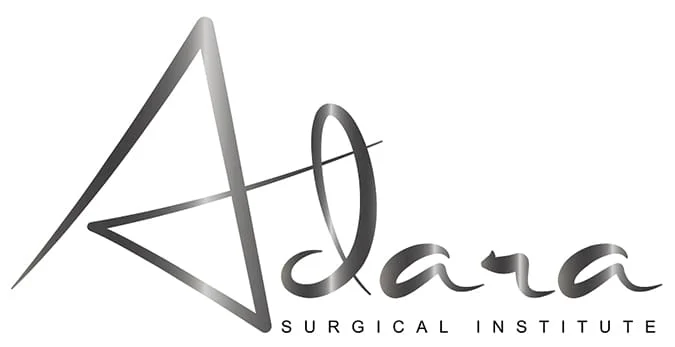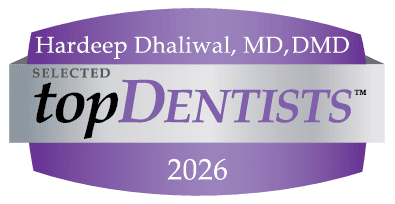At Adara Surgical Institute, our skilled oral and maxillofacial surgeons perform extractions with precision and care. Whether it’s a routine removal or a more complex case, we ensure a smooth and comfortable experience for every patient.
Reasons for Tooth Extractions
Extracting a tooth is always the last resort, but in some cases, it is the best option to protect your overall health and prevent further complications.
Common reasons for a tooth extraction include:
- Extensive decay: When a tooth is too damaged to support a restoration, removal may be necessary.
- Advanced gum disease: Severe infections can weaken the bone and surrounding teeth, leading to extraction.
- Infections or abscesses: If an infection spreads deep into the tooth, extraction can prevent further oral health issues.
- Impacted wisdom teeth: Wisdom teeth that don’t fully emerge can cause pain, crowding, or infection.
- Orthodontic treatment: In some cases, a tooth may need to be removed to create space for proper alignment.
- Preparation for dental implants: When multiple failing or damaged teeth need to be replaced, extractions may be necessary to prepare for a full arch restoration with dental implants. Removing compromised teeth ensures a stable foundation for a permanent, natural-looking smile.
Types of Tooth Extractions
There are two main types of tooth extractions:
Simple Extraction
A simple tooth extraction is performed when a tooth is fully visible above the gumline and can be removed with minimal intervention. This procedure is typically quick, with a shorter healing period compared to surgical extractions.
Surgical Extractions
If a tooth is impacted, broken, or has complex roots, a surgical tooth extraction may be required. This involves carefully making a small incision in the gum to access the tooth. In some cases, the tooth is removed in sections to minimize disruption to the surrounding bone and tissues.
Procedure Details
We use advanced techniques to reduce trauma, promote faster healing, and ensure a smoother recovery. When performed at Adara Surgical Institute, we generally follow these steps:
- Consultation and evaluation: We begin with a thorough examination, including digital imaging, to assess the tooth and surrounding structures. Our team discusses treatment options and ensures you fully understand the procedure.
- Sedation options: To help you feel at ease, we offer conscious sedation and general anesthesia based on your level of comfort and the complexity of the extraction.
- Tooth removal: The extraction is performed with precision to minimize disruption to surrounding bone and tissue. For simple extractions, the tooth is gently loosened and removed. Surgical extractions may require a small incision in the gum or the tooth to be sectioned for easier removal.
- Minimally invasive techniques: Our team prioritizes techniques that reduce trauma, leading to shorter recovery times and less postoperative discomfort.
- Aftercare: We provide detailed aftercare instructions to ensure a smooth recovery.
Aftercare and Recovery
Proper aftercare will ensure you have an uncomplicated recovery. Here are a few things to keep in mind.
- Mild pain and swelling are normal after an extraction. We recommend using prescribed or over-the-counter pain relievers and applying ice packs to reduce swelling.
- A blood clot forms in the socket after extraction to support healing. Avoid drinking through a straw, smoking, or vigorous rinsing, as these actions can dislodge the clot and lead to dry socket.
- Stick to soft foods such as yogurt, applesauce, and mashed potatoes for the first few days. Avoid hot foods, as well as crunchy, sticky, or hard foods that may irritate the area. For a complete list of foods to eat after a tooth extraction, download our free PDF.
- Keep the area clean by gently rinsing with salt water after 24 hours. Avoid brushing directly over the extraction site for the first few days.
We are always available to answer questions and provide additional guidance to ensure a comfortable recovery. If you call after hours, you will be able to speak to Dr. Dhaliwal or Dr. Dolan. We are always available to our patients!
Immediate Dental Implant Placement
We specialize in immediate implant placement, meaning we can often place a dental implant at the same time as a tooth extraction.
This approach:
- Reduces overall treatment time
- Preserves the jaw bone and prevents bone loss
- Provides a faster solution for a fully restored smile
In some cases, additional healing time is required before placing an implant. If bone loss has already occurred, a bone graft may be needed to strengthen the jaw bone before implant placement.
Why Choose Adara Surgical Institute for Your Dental Extraction?
Choosing the right provider for your dental extraction is essential for a smooth procedure and successful recovery.
Our experienced oral surgeon uses advanced techniques to ensure safe extractions with minimal discomfort.
- Dr. Hardeep Dhaliwal is a quadruple board-certified oral and maxillofacial surgeon with expertise in complex extractions and patient-centered care.
- We prioritize techniques that reduce trauma, speed up healing, and lower postoperative discomfort.
- For eligible patients, we can place dental implants at the time of extraction, minimizing treatment time.
- We provide clear recovery instructions and remain available for any post-operative concerns.
Adara Surgical Institute
Schedule A Consultation
To book a consultation at our oral surgery office in Issaquah, WA, call (425) 428-5888 or visit us at 6505 226th Pl SE STE #100 Issaquah, WA.
We are located in the heart of Issaquah, WA, in the back of Meadow Creek Business Center. We have plenty of parking and easy access into our building, which is conveniently located on the first floor and easily accessible for all patients.
Request an AppointmentFAQs
What can I eat after a tooth extraction?
Stick to soft foods like yogurt, applesauce, mashed potatoes, scrambled eggs, and smoothies to avoid irritating the extraction site. For a more detailed list of soft foods to eat after a tooth extraction, download our free PDF!
How long after tooth extraction can I eat?
You can eat soft foods within a few hours but should avoid chewing near the extraction site and make sure the numbing has completely worn off.
How long does it take for a tooth extraction to heal?
Most patients experience initial healing within 7 to 10 days, meaning the gum tissue will begin to close over the extraction site. However, complete recovery, including full jaw bone healing, can take several months, especially if a dental implant or bone grafting is planned.
Can I drink alcohol 24 hours after tooth extraction?
It is best to avoid alcohol for at least 24 to 48 hours to prevent interfering with the blood clot formation and healing process.
When can I smoke after tooth extraction?
Smoking should be avoided for at least 72 hours, but waiting a full week reduces the risk of dry socket and infection.

